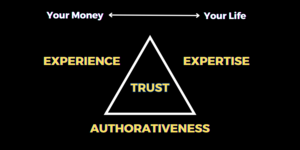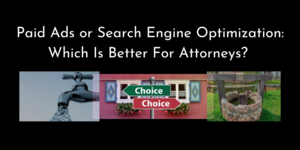Editor’s Note: This post was originally published on May 20th, 2020.
Business owners are consistently looking for growth in both revenue and profits. Developing a plan to scale the business is a key factor in establishing and maintaining that growth. Without it, they often flounder constrained by their existing people, processes, and products/services.
The alternatives are predictable.
- Nothing is more frustrating as a business owner than your business beginning to feel like a job!
- Nothing makes a business feel like a job quicker than the inability to develop a team and delegate.
Without delegation, the owner ultimately constrains the business by his/her capacity and knowledge.
People and organizations don’t grow much without delegation and completed staff work because they are confined to the capacities of the boss and reflect both personal strengths and weaknesses.
Stephen Covey (Seven Habits of Highly-Effectively People)
What Does It Mean To Scale A Business?
According to SCORE, the definition of scaling a business means setting the stage to enable and support growth in your company. It means having the ability to grow without being hampered. It requires planning, some funding, and the right systems, staff, processes, technology, and partners.
Owners and leaders enable growth over and above what is being achieved currently through the identification of needed changes to people, processes, or products/services. While there are limits that an individual can accomplish, a team of trained individuals following good practices will inevitably outperform even the highest achiever. Even if gross results are comparable in the short term, time (and burnout) will eventually overcome.
Why Some Owners Avoid Scaling?
Many owners (and managers) refuse to relinquish control. Much of this is based on fear.

First (and rightly), there is the fear that a subordinate will decide or do something different. With consistent coaching and clear end-state objectives, leaders can groom their employees to act as their representative and proxy. However, their unique experiences and judgment will sometimes lead them to make decisions differently than the leader might have made in the same situation.
This reality leads to the second fear which is the subordinate’s different decision may fail (or, more worrisome to weaker leaders, it may succeed). A business achieves more over time through effective scaling than the leader could accomplish alone.
...But Scaling Isn't Just Delegating
Many consultants and advisers use the terms scaling and delegating interchangeably. While they are similar terms, they have different meanings as it relates to growth. When scaling a business, one develops talent, sets objectives, and delegates authority. However, there is more to a business scaling strategy than simply delegating to subordinates.
Effective scaling involves uncovering gaps or constraints within a business and identifying the processes, people, and technology to fill and overcome them.
How Long Does It Take To Scale A Business?
The plan to scale a business might take a few weeks to possibly a month given the appropriate focus. Whether it be the development of the processes for product/service delivery or structure/hiring plans that put the right individuals in place to support business goals, these can be started quickly.
As business changes, owners and leaders should revisit their plans for growth/scaling.
Where a business practiced good scaling practices from the outset, it might review progress and adjust quarterly. Others more dependent upon the founder or key early-stage partners/employees should take a more methodical approach setting milestones and monthly progress reviews.
Scaling Tiers
For the purposes of identifying where a business is as it relates to effective scaling, it can be viewed in the context of the types of work that we transition.
There are two main tiers.
- Tier 1 – Things disliked or that the Leader does poorly.
- Tier 2 – Things enjoyed or that the Leader does well
Tier 1
Tasks, activities, processes, etc. in the first tier represent those things that the business or business owner dislikes or is not good at. Frankly, this group is the easiest to delegate, change, stop, or pass along as a referral to someone else. These are first on the list of things to “go away”.
As these items are unlikely to be “strengths” for the parties developing a scaling plan, these should be the first considerations. They are probably a source of frustration and the quickest pathways to burnout so identifying better options is keenly important.
Key Objectives
- Find the alternative process, source, or delegate as quickly as possible
- Set clear, measurable goals
- Do it immediately
Tier 2
Items in this second tier will be more challenging to address. This list includes those things the business or business owner enjoys or does well. This group will be the hardest to give up and will require the most thorough planning, execution, and measurement of results.
For these cases, the deciding factor is not capability, but the opportunity to make it better. They are also likely to be the biggest risk of meddling as ownership will be difficult to relinquish.
The best executive is the one who has sense enough to pick good men to do what he wants to be done, and self-restraint to keep from meddling while they do it.
President Theodore Roosevelt
Key Objectives
- Current responsible party must be a participant when addressing Tier 2 items
- Guidelines for autonomy and empowerment need to be set first
- Clear, measurable goals follow
Happiness Is The Key To Scaling A Business!
While much focus on business scaling deals with growth, it must be tempered with the self-awareness of where the owner or other leaders are happiest. Building the next Facebook or Google would be hollow goals for someone disinterested in owning/operating a large organization. A sole-proprietorship that comfortably provides for a family may have simple scaling needs.
Consider a farmer and those he feeds.
- To feed his family, he plows, plants, tends, and harvests.
- When feeding his neighbors, he directs those plowing, planting, tending, and harvesting.
- To feed his community, he decides where to plow, what to plant, how to tend, and when to harvest.
A key dichotomy of scaling and growth is dependent upon how much satisfaction the farmer derives from the means or the ends. If the farmer is more interested in soil, seeds, and the field, it is the work that excites her. If the farmer is more interested in feeding people, their goal is the outcome.
Are you more motivated by the work or the outcome?
Wrap Up
If you are looking to scale your business, take a measured look at your current people, processes, and products/services as well as what size of business provides the most satisfaction. When you break each down, you will select better candidates, restructure ineffective processes, and present better offers to your customers. The more you identify where the business triggers your own happiness, the more you will be able to develop a scaling strategy that delivers the most value to you.
If you are trying to decide how to get started with your business scaling plan or take action toward Tier 1 or 2, check out this post about effectively initiating changes. While often overwhelming at the moment, consistent and small actions produce the best results!



